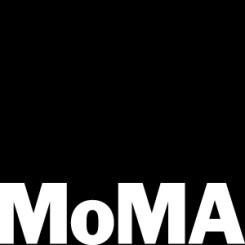Whitehot Magazine
May 2024
"The Best Art In The World"
"The Best Art In The World"
May 2024
January 2008, Lucian Freud: The Painter's Etchings @MOMA

Lucian Freud, Large Head, etching courtesy Museum of Modern Art New York
January 2008, Lucian Freud: The Painter's Etchings @MOMA
Why the Painters Still Matter
In spite of everything rabidly conceptual artists have done to convince us that drawing is “out” and anything else is “in”, our instincts are often less prone to fashion. The Polish poet Zbignew Herbert wrote controversially on the “the power of taste” thereby implying that there were irrefutable aesthetics in the power of art, and even less acceptable to the modern dialogue, that some art is simply bad. There are those who may not like Lucian Freud (he is so annoyingly unfashionable!) and they have that right, but not even the most cynical of the post-post modernists can claim that Freud is a lousy painter. The point is not technique--- there are factories in China which employ thousands of highly skilled copiers who produce flat, bland reproductions of famous paintings. Talent, without temperament, is an empty proposition--- it’s what distinguishes great artists from mediocre ones.

Lucian Freud, Leigh Bowery, oil on canvas courtesy Museum of Modern Art New York
Lucian Freud’s tireless exploration of the human form, removed from the romantic pedestal, and examined in the most minute and disturbing detail, makes him the most interesting British painter of his generation.
Freud has produced stunning figurative paintings and portraits for over sixty years, but these lesser known etchings reveal a much more delicate approach to his subjects than his oil paintings. In this interesting mix of paintings and prints spanning six decades, Starr Figura, the curator, has engineered a fascinating glimpse at the bones behind Freud’s paintings. His first etchings were produced in the 1940’s after which he abandoned the technique for over thirty years, returning to the plates in the 1980’s. In spite of Freud’s use of color in his oil paintings, his subjects are always bleak. For Freud, the hard reality of an image is far more interesting than anything imagined. Etching, a process in which a reverse image is scratched with special needles on copper plates, is a technique that lends itself to Freud’s relentless eye. His vision is as exact and uncompromising as the hairline etches in these black and white prints. The result is powerful and a little disturbing, as though things are being magnified when we asked for no such thing. Freud is foremost a portraitist, and his unerring and often unflattering images speak of the immense depths behind the simplest objects and things. Few contemporary artists can claim the ability to capture a human emotion so precisely and so unflinchingly. His occasional forays into non human subjects show similar ability, whether it is the dense flora of his garden or the exquisite form of his dog, Pluto, which is one of the finest etchings on display.

Lucian Freud, Pluto Aged Twelve, etching courtesy Museum of Modern Art New York
While Freud is considered old fashioned by the new art market crowd, his highly controlled images achieve a greater sense of his, or his subject’s psychological nuances, than any number of art pieces which read like users manuals on how to understand the symbols. We are not being tricked by Lucian Freud. He is a man who draws or paints or scratches in exactly what he sees, and in these times, that is innovation.
Stephanos Papadopoulos for Whitehot Magazine, New York, 2008

Stephanos Papadopoulos
Stephanos Papadopoulos was born in North Carolina and raised in Paris and Athens. Educated in the and Edinburgh, he holds a degree in classical archaeology from the University of North Carolina at Chapel Hill. He was invited to the Rat Island Foundation by Derek Walcott in 1998. His work has been published in periodicals such as The Yale Review, Poetry Review, Stand Magazine, The New Republic and many others. He has translated works of the Greek poets, Yiannis Ritsos and Katerina Anghelaki-Rooke. he is editor and co-translator of Derek Walcott’s Selected Poems, 2007. Lost Days, his first collection, is published by Michael Hulse with Leviathan Press in London and Rattapallax Press in New York. His second book Hotel-Dieu is forthcoming and he is at work on a book about the Black Sea Greeks. stpapas@hotmail.com
view all articles from this author







